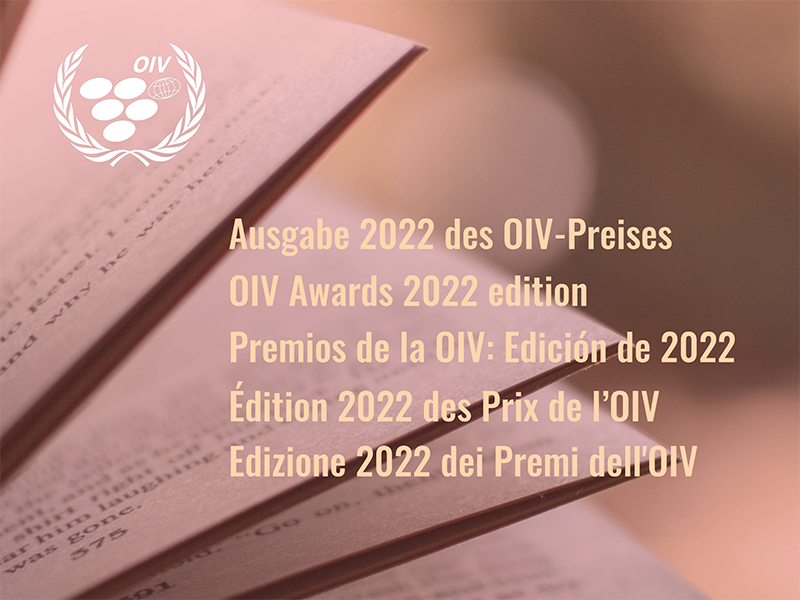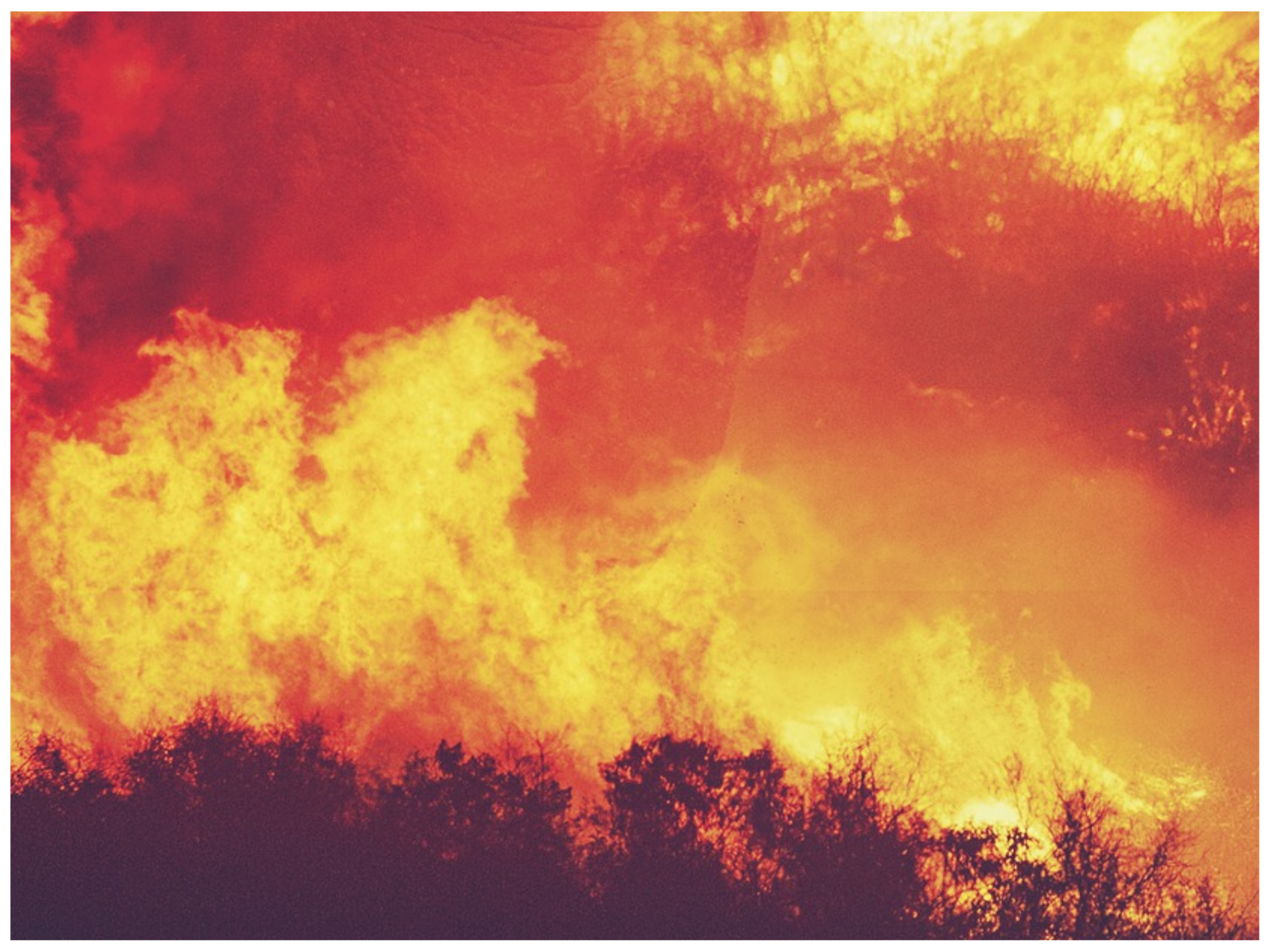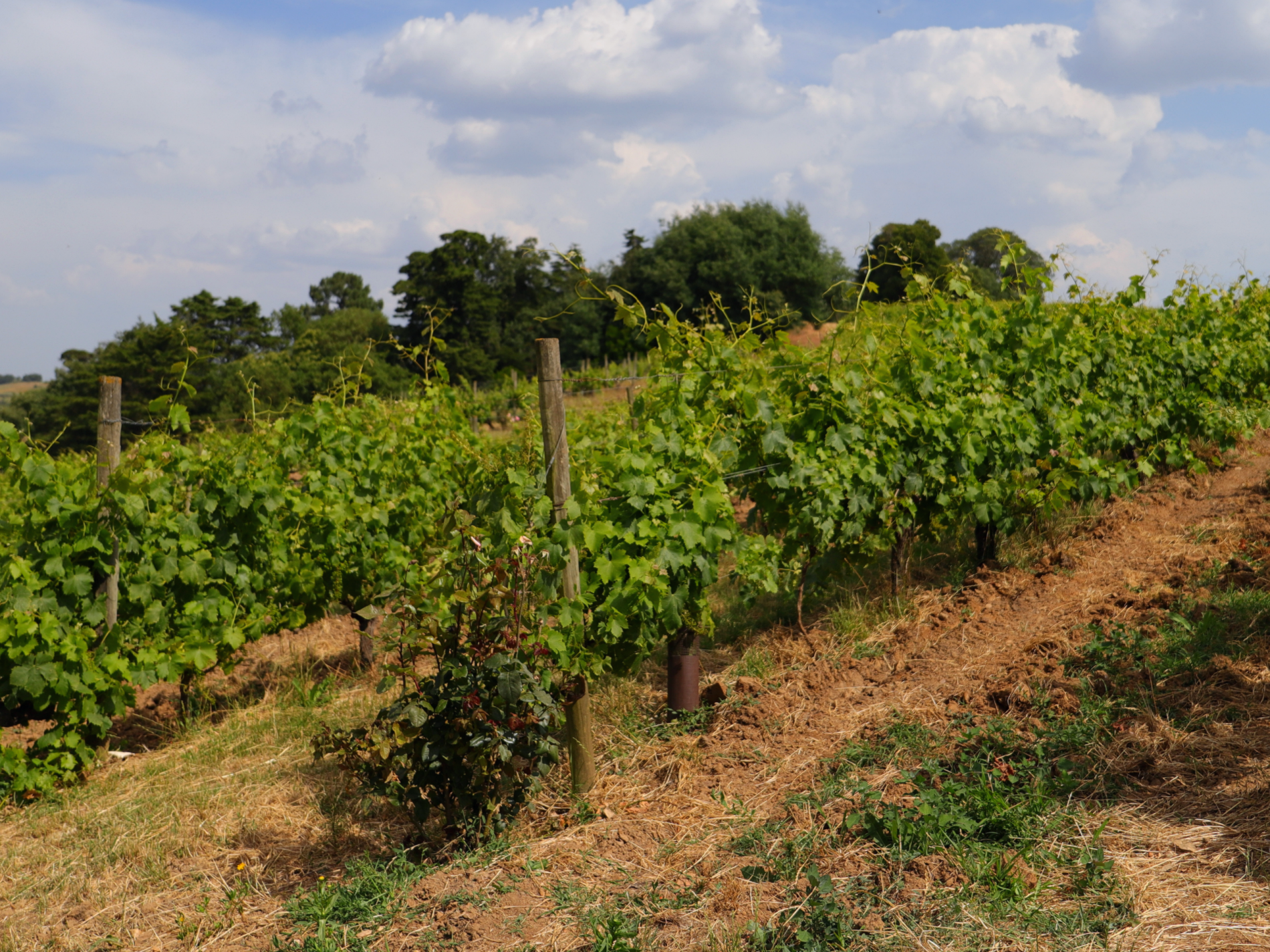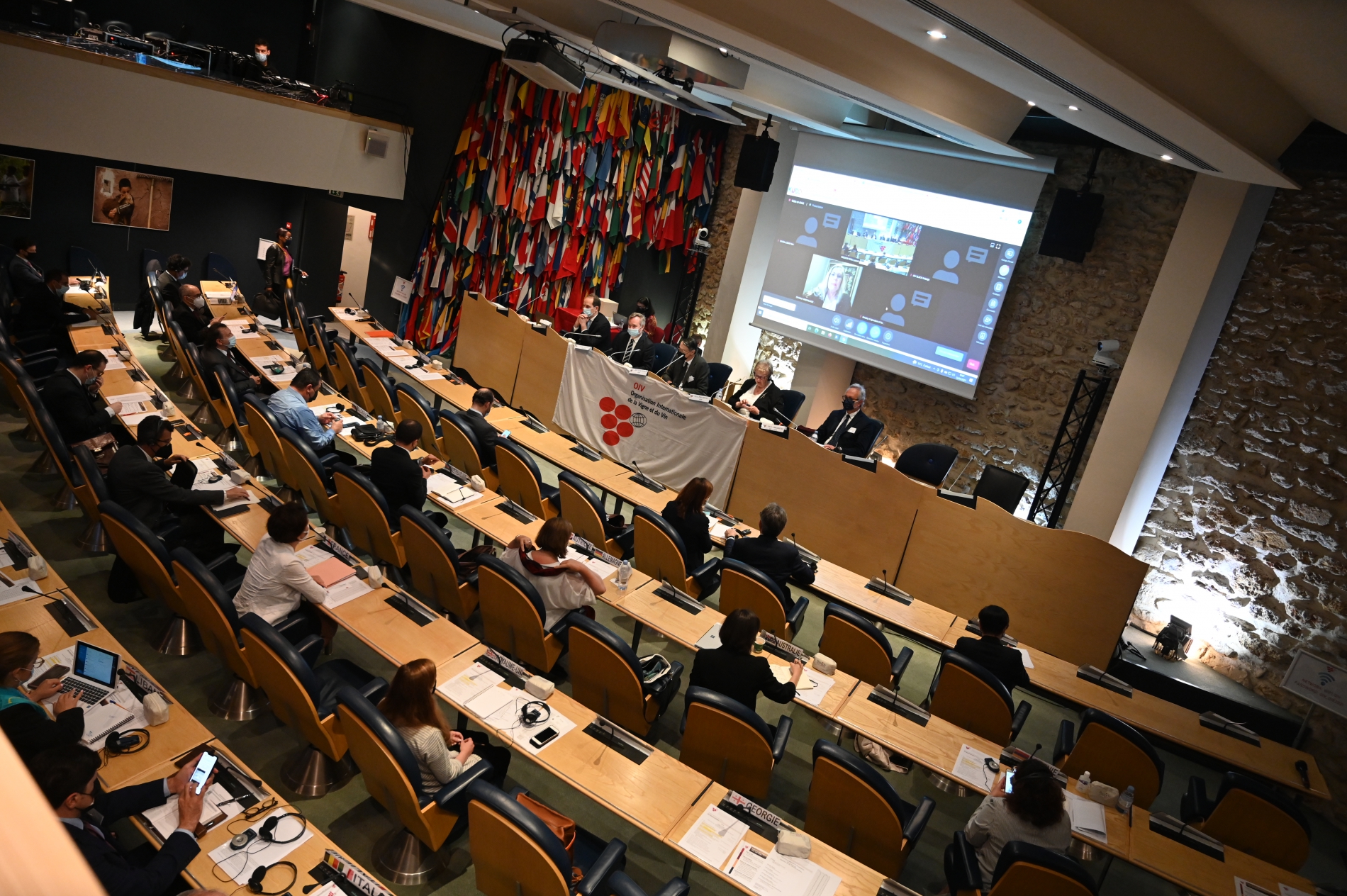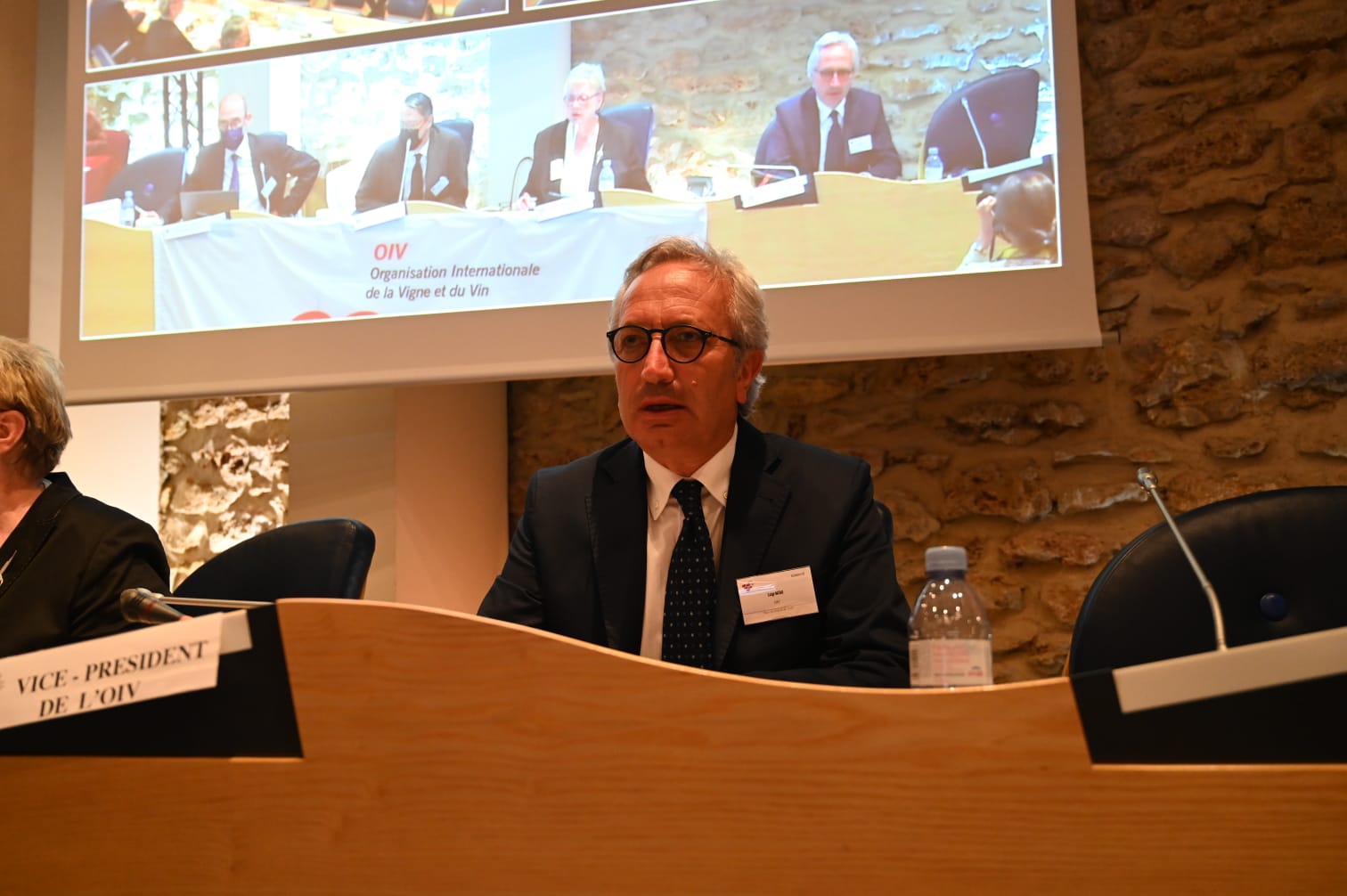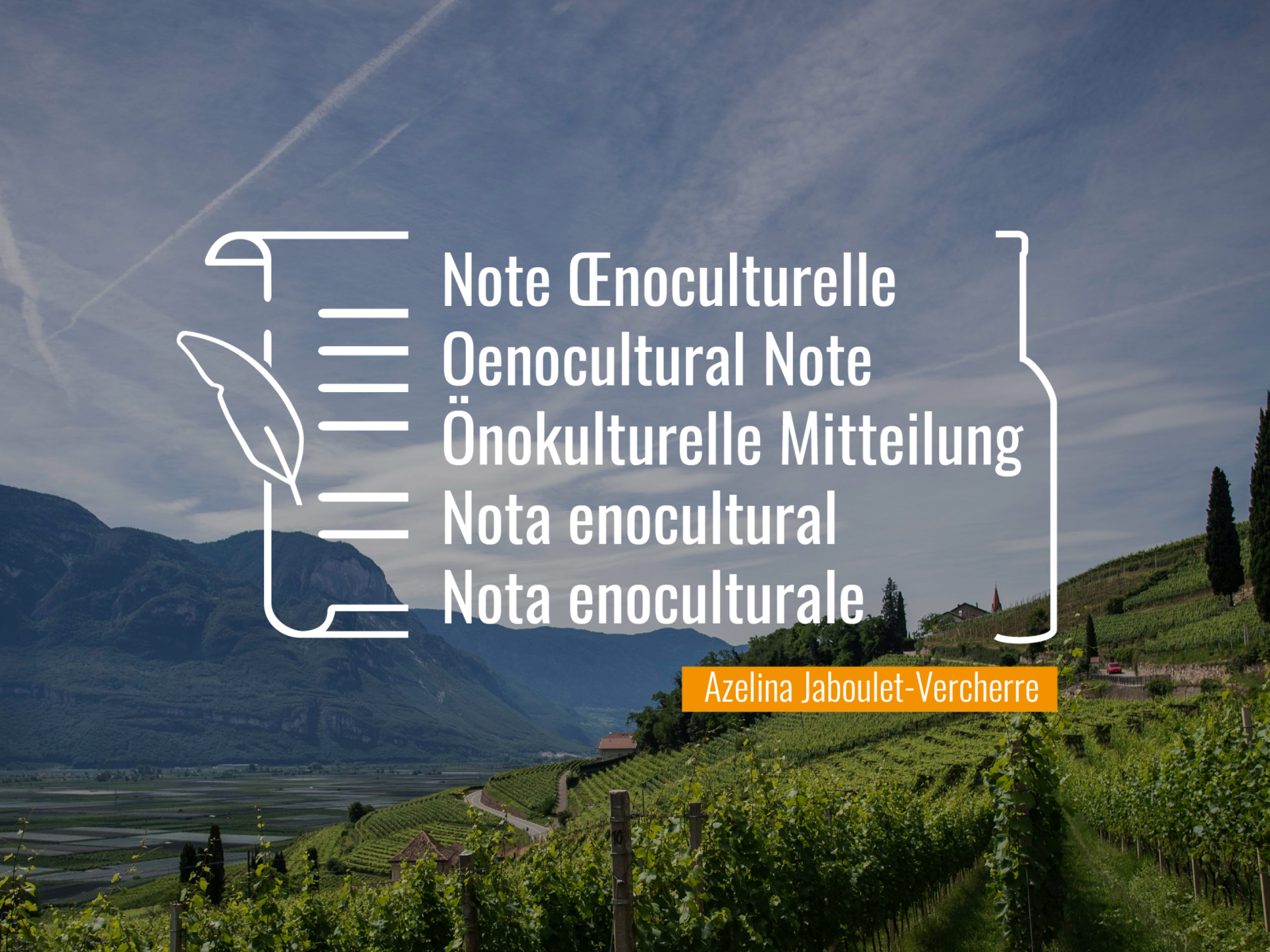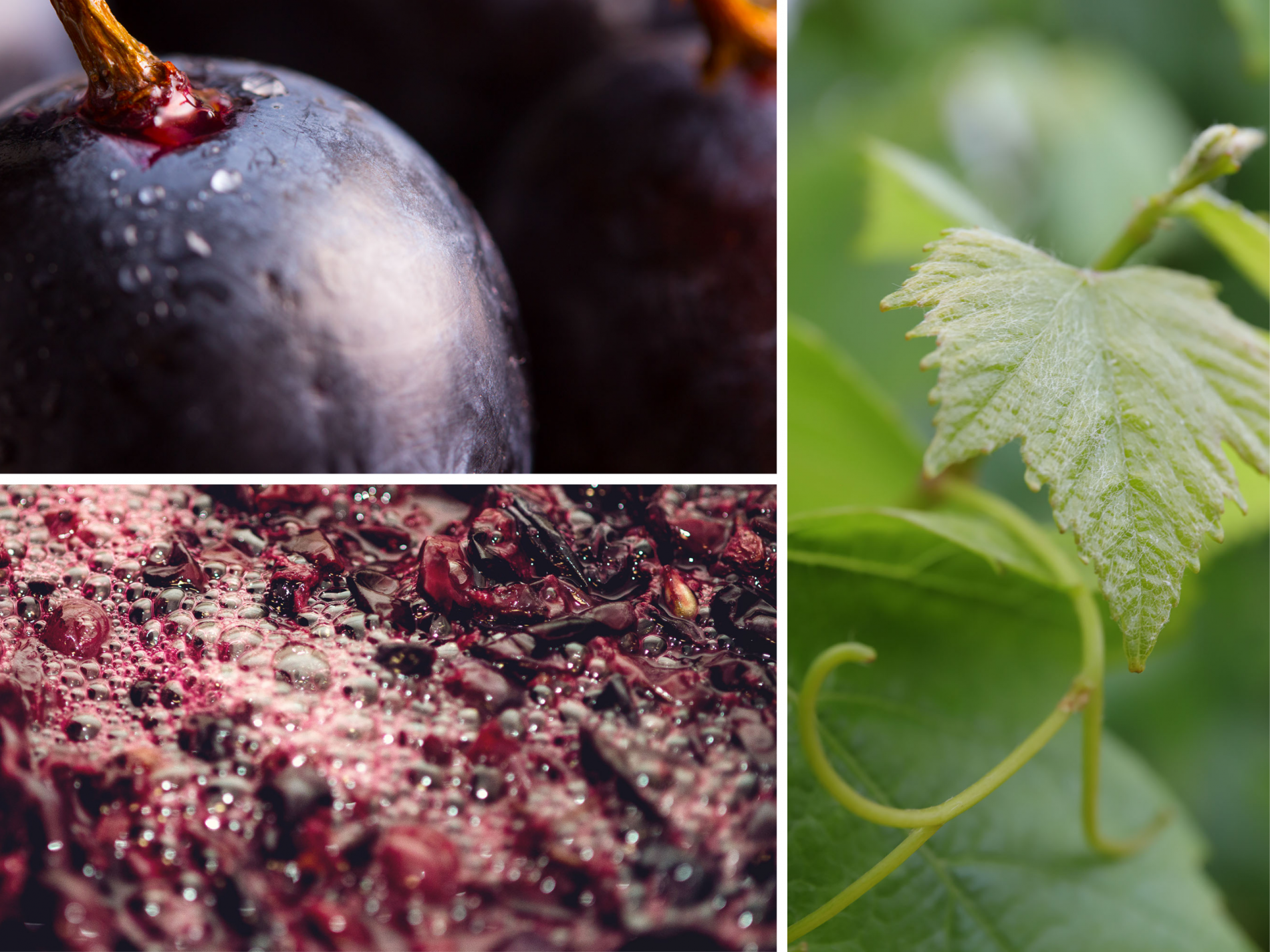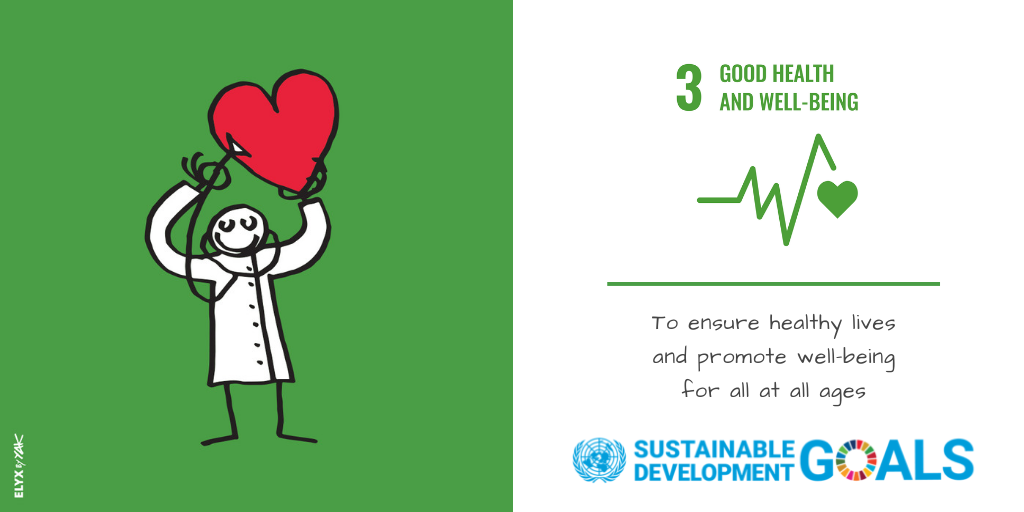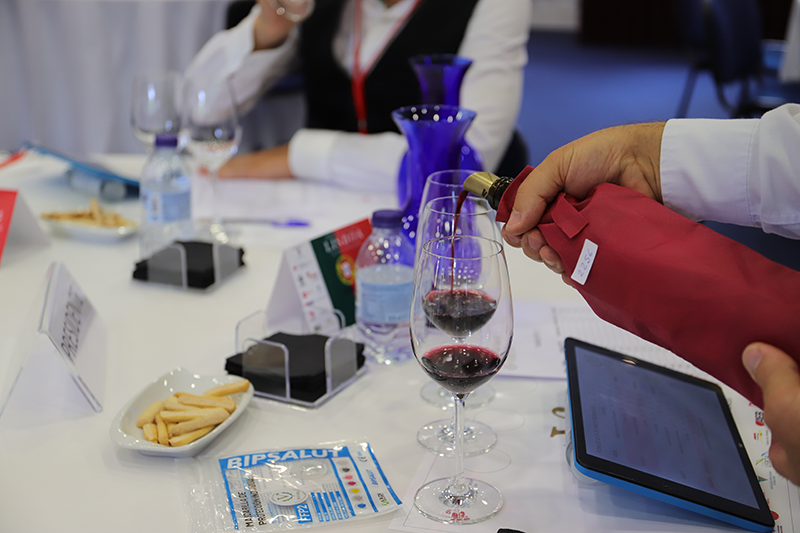30 авг 2021
OIV Awards: information and the registration form of the 2022 Edition are available here.Registrations: September 1, 2021 - February 28, 2022● Paper printed books in the 12 categories.● Interactive digital Tool (Websites, Webformation) in the categories: Viticulture and Sustainable Vitiviniculture, Oenology, Vitivinicultural Economy and Law, History, Literature and Fine Arts, Wine and Health.Magazines, commercial guides and commercial Websites are not accepted.For any question: jurydesprix@oiv.int
12 авг 2021
Scientists warn that humans are changing the climate in some irreversible ways, in the sixth assessment report presented at the last UN’s Intergovernmental Panel on Climate Change (IPCC).Heatwaves have become more frequent and intense since 1950 according to the last UN’s Intergovernmental Panel on Climate Change (IPCC). This report, made by a group of scientists whose findings are endorsed by world governments, have also found that the past five years have been the hottest on record since 1850.Over the last years, we observed how climate change has been a key factor in increasing the risk and extent of wildfires. Vineyards couldn’t escape/ have not escaped from this calamity. Countries such as Australia, the USA, Portugal, Italy or Greece faced or are facing this problem, which is so much reflected in wine in many ways.Wildfires impact environmental sustainability, affecting the terroir and changing the smell and flavour of wine.The high incidence of wildfires is a direct result of the warming of the atmosphere due to man-made greenhouse gas emissions, causing drought and strong winds that spread flames quickly and complicate putting out the fire. High temperatures caused by fire may also destroy and dry out grapes to the point of making them unsuitable to use.Facing climate change through mitigation and adaptation activities is the first point of our Strategic Plan number 1 Axis “Promote environmentally-friendly vitiviniculture”. Consult the OIV Strategic Plan To go deeper in this subject, we also invite you to consult the scientific article, on open access: “Techniques for Mitigating the Effects of Smoke Taint While Maintaining Quality in Wine Production: A Review”.The conclusions of the sixth assessment report of the IPCC can be viewed online using the IPCC WGI Interactive Atlas.Wildfires impact environmental sustainability, affecting the terroir and changing the smell and flavour of wine.
04 авг 2021
During the last General Assembly, the OIV adopted by consensus the Update to the Definitions of Geographical Indication and Appellation of Origin (OIV-ECO 656-2021). The “Law and Consumer Information” (DROCON) Expert Group of the OIV Commission III “Economy and Law” has been working on this resolution for many years, to align the definitions with those that currently appear in the main international agreements on intellectual property*. This resolution is a continuance of the work of the OIV, which adopted the first international definition of Appellation in 1947. In 1992, the OIV adopted the definition of Recognised Geographical Indication (RGI) and updated the definition of Recognised Appellation of Origin (RAO) (OIV-ECO 2/92). Through the adoption of the new 2021 text, the 1992 resolution is now obsolete and thus withdrawn to make way for two new definitions in line with the WIPO and WTO international definitions. The OIV has always played a decisive role in the definition, promotion and protection of the concepts of AO and GI. Between its 1992 and 2021 definitionsIncreased interest in geographical denominations as heritageThese new definitions consider the increasing importance of the use of geographical denominations – an element of national heritage – in the designation of wines and spirit beverages of viticultural origin, as well as the rights of Members to protect such denominations in accordance with international agreements. The OIV also wanted to reiterate that indications of source or AOs are objects of industrial property and have a right to the same international protection, especially regarding unfair competition rules.These new definitions consider the increasing importance of the use of geographical denominations – an element of national heritage – in the designation of wines and spirit beverages of viticultural originThe OIV has always played a decisive role in the definition, promotion and protection of the concepts of AO and GI. Between its 1992 and 2021 definitions – the latter encompassing those of the WTO (1994) and WIPO (2015) – the OIV takes into account changes in the use of indications of origin within a pioneering vitivinicultural sector in this domain of intellectual property.The new definitions
A Geographical Indication is now defined as follows:Any denomination protected by the competent authorities of the country of origin, which identifies a wine or spirit beverage as originating in a specific geographical area, where a given quality, reputation or other characteristic of the wine or spirit beverage is essentially attributable to its geographical origin.
An Appellation of Origin, for Member States that recognise this term, is defined as follows:Any denomination recognised and protected by the competent authorities in the country of origin, consisting of or containing the name of a geographical area, or another denomination known as referring to such area, which serves to designate a wine or spirit beverage as originating in that geographical area, where the quality or characteristics of the wine or spirit beverage are due exclusively or essentially to the geographical environment, including natural and human factors, and which has given the wine or spirit beverage its reputation.*For GI: the 1994 TRIPS Agreement (Article 22); for AO: the 2015 Geneva Act of the Lisbon Agreement (Article 2.1.i&ii). The OIV’s newly updated definitions of GI and AO now incorporate notions of reputation and of protection by the competent authorities in the respective countries.
11 июл 2021
A new 3-year presidencyTwo points of the agenda were highly expected at this General Assembly. Firstly, the election to the OIV presidency, which was entrusted to Luigi Moio. The new President now assumes a 3-year mandate, succeeding Regina Vanderlinde. The Scientific and Technical Committee has also been renewed with new heads of working bodies elected. Read full press release
11 июл 2021
An Italian has been elected President of the International Organisation of Vine and Wine for the next three years, succeeding the Brazilian Regina Vanderlinde.Luigi Moio is Professor of Oenology at the University of Naples and Director of the Vine and Wine Science Section of the same University. For over 25 years he has been involved in the sensory, biochemical and technological aspects of the aroma of wine. He is the author of around 250 scientific publications with an H-Index of 41 for Google Scholar, 32 for Scopus and 32 for WOS, with over 4800 (Google Scholar), 2800 (Scopus) and 2900 (WOS) quotations.Luigi Moio, the new OIV PresidentSince 1998 he is a scientific expert for the Italian Ministry of Agricultural Policies. From 2009 to 2014 he was Chairman of the Technology Expert Group of the OIV (International Organisation of Vine and Wine) and from 2015 to 2018 of the Oenology Commission. He was the OIV’s 2nd Vice-President.He is a member of the Georgofili Academy and the Italian Academy of Vine and Wine. Author of books and articles on the scientific aspects of oenology, he is often interviewed on Italian national network broadcasts on issues related to the wine sector. In 2016, he published the book Il Respiro del Vino for Mondadori. A scientific essay on the aroma of wine that won several awards. The book is in its tenth edition with around 30,000 copies sold in Italy. In 2020 the French edition of the book Il Respiro del Vino was published in France with the title: Le Souffle du Vin for the publishing house Editions France Agricole.In 2001 he founded the Quintodecimo winery where he produces quality wines with the most prestigious denominations in Campania.At this General Assembly the Presidents of the scientific bodies were also elected:Commission I ViticultureAhmet Altindisli (Turkey) succeeds Vittorino NOVELLO (Italy)Commission II EnologyFernando Zamora (Spain) succeeds Dominique TUSSEAU (France)Commission III Law and EconomyYvette van der Merwe (South Africa) succeeds Dimitar ANDREEVSKI (Bulgaria)Commission IV Safety and HealthPierre-Louis Teissedre (France) succeeds Gheorghe ARPENTIN (Moldavia)Sub-commission Methods of AnalysisManuel Humberto Manzano (Argentina) succeeds Markus HERDERICH (Australia)Sub-commission Non-fermented products, table grapes and raisins Luís Carlos Ferreira Peres de Sousa (Portugal) succeeds Alejandro MARIANETTI (Argentina)
03 июл 2021
Thomas Jefferson, wine’s heraldAzélina Jaboulet-Vercherre Associate Professor, Ferrandi Paris Every man has two countries, his own and France1. Thomas Jefferson (1743-1826), a Founding Father of the American democracy and author of the Declaration of Independence (4 July 1776), was a passionate advocate of wine. His connoisseurship makes him both a symbol of his time and a pioneer, a tasty paradox. Wine, the banner of moderation Cosmopolitism, humanist culture and philosophical opinions: Jefferson championed all facets of the Enlightenment. He was categorical: wine is different from spirits. But he went even further, as a faithful opponent to the early prohibitionist mystique. He showcased wine as a cure for alcoholism, thereby joining a long medical tradition, from the Hippocratic Collection onward, advocating its power as a therapeutic tool. An ambassador in the vineyards While in Paris as Minister Plenipotentiary (1784-1789), the “foreign gentleman” (as he liked to call himself) anonymously travelled throughout the French vinelands, further reinforcing his convictions of wine’s benefits on one’s physical and mental health2. His notebooks take us in the footsteps of this aesthete of wine and vineyards, which he also appreciated for their beauty3. The result is an enticing series of highly personalized wine routes, where the picturesque sits alongside detailed observations. Indeed, through his notes, wine appears as a vibrant character. With panache, he depicts inspiring portraits: wine’s hall of fame. Diplomatic value Jefferson had trustworthy tastes and held on to his preferences. “America’s first wine aficionado” developed a classification for Bordeaux wines – a classification comparable to the famous 1855 list, based on data provided by the industry’s brokers at the request of Napoleon III4. Jefferson also took into account material (price and fiscal impact) and technical (viticultural methods) aspects. Yet, his approach appears as more sensory, more sensualist. Jefferson did not content himself with the two starred wine regions (Burgundy and Bordeaux); he also surveyed southern France, northern Italy, as well as the Rhine, Moselle and Champagne. Over time and as his tasting profile flourished, he complemented his wine journey with the Rhône, the Languedoc-Roussillon, Spain and even Portugal. His curiosity, energy and ability to concentrate all served his cause, leading him to brave the difficulties of shipping wine (duration, weather conditions, pirate attacks). He preferred to trade directly with producers - for pricing conditions as much as for conversation - to such an extent that he became an advisor to the tax authorities. A clever use of the diplomatic channel to be reconsidered. A celebration of wine Thanks to Lafayette, to name just one of his illustrious acquaintances, he entered the most brilliant circles of Enlightened Paris. One can easily envision him in these salons, his mind as ‘brisk’ as some of the wines he loved. Jefferson was by no means an ordinary wine collector. He considered drinking as a celebration, yet to be handled with care. Wine is a serious thing, he devised, unchallenged. Every step is crucial to the optimal wine experience, a combination of sensation, emotion, and culture. The gentleman diplomat found in wine the perfect tool to illustrate the cardinal virtue of temperance. He emphasized its social role, “savoir-vivre” being at the core of the “art of drinking”. And at the time, holding one’s liquor was the sign of Frenchness – something he deemed worth exporting and duplicating. Let us give justice to Jefferson’s message: wine, the civilizational drink par excellence, is education’s best ambassador. ------------------------------------------------ 1 Thomas Jefferson, cited in Bernard Ginestet, Thomas Jefferson à Bordeaux et dans quelques autres vignes d’Europe (Bordeaux: Mollat, 1996, p. 118). 2 From the rich bibliography on Wine and Jefferson, see John Hailman, Thomas Jefferson on wine (Jackson: University Press of Mississippi, 2006); Jim Gabler, Passions, The Wines and Travels of Thomas Jefferson (Baltimore: Bacchus Press, 1995); Jim Gabler, An Evening with Benjamin Franklin and Thomas Jefferson: Dinner, Wine, and Conversation (Baltimore: Bacchus Press, 2006). 3 Thomas Jefferson, Thomas Jefferson’s European Travel Diaries, ed. James McGrath Morris, Persephone Weene (Ithaca: Isidore Stephanus Sons, 1987). 4 Frederick J. Ryan, Jr., Wine and the White House: a History (The White House Historical Association, 2020, p. 20).
29 июн 2021
The OIV welcomed the signature of a consortium agreement between Viña Concha y Toro (Chile), Moët-Hennessy (France), Sogrape (Portugal), Familia Torres (Spain) and Yalumba Family Winemakers (Australia) with the objective of contributing to promoting and supporting the Organisation’s technical and scientific diffusion. Press release
28 июн 2021
In vino veritas. You have all heard this statement, possibly thinking that it emerged in Latin. Yet here, as often, the Romans took this notion from the Greek: οῖνος καὶ ἀλήθεια (oinos kai aletheia). It appeared as early as the 6th century B.C. in works by the poet Alcaeus (Fragments, 333), Athenaeus (The Deipnosophists, II), Plutarch (The Life of Artaxerxes), Cicero (Topics), or even the Babylonian Talmud (Eruvin 65a). Among wine lovers, particularly in the Loire, Rabelaisian precepts are quoted at will. We rejoice in the idea of the divine bottle when wine is poured. However, in Rabelais’ work, its physical presence fades into the background: it features an oracle. In the Fifth Book (chapter XLV), when he writes “by wine we become divine”, he alludes to embracing religion, or at least a spiritual quest which prevails, by far, over materiality. Rabelais’ “pantagruelism” itself is an orgiastic simile, standing for knowledge. The body is a mere medium for the spirit’s uplifting. “Laughing is man’s gift” he wrote, and long before Bergson. Making this statement as an isolated quotation leads to misreading. Indeed, Rabelais quickly takes it back with the following words: “Not laughing, but that drinking is the distinguishing character of man […]1. Such assertions are part of the genesis of the history of wine and are worthy of renewed attention.
As a medievalist, it is my joyful mission to introduce the noble words of the history of wine within their proper context, thereby giving justice to their authorship and scope.I am delighted to introduce this new column entitled Enocultural Note, regular reminders of my allegiance to the OIV, wine and history: a beautiful opportunity to share insights on wine. Let us hope that the illustrious characters I will be selecting for you will help us understand our own relationship to wine. Azélina Jaboulet-Vercherre Azélina Jaboulet-Vercherre - Wine historian Since she received her Ph.D. degree in History (Yale University, 2011), Azélina Jaboulet-Vercherre has created wine history and culture courses, tailored to various higher education institutions, particularly Ferrandi Paris (where she currently is an associate professor). In 2019, the OIV Scientific and Technical Committee appointed Azélina to the position of President of the International OIV Award Jury. ____________ 1 Fifth book, Chapter XLV. “How Bacbuc explained the word of the Goddess-Bottle”
22 июн 2021
From 22 to 25 June, the Alcohol, Drugs and Addictive Behaviours (ADA) Unit, within the Department of Mental Health and Substance Use at WHO headquarters organise the FADAB. An event in which the OIV took part yesterday, bearing in mind that one of the organisation’s core missions is to help protect consumer health and to contribute to food safety, as stated in the Agreement of 3 April 2001, Article 2.2. In particular: by specialist scientific monitoring, making it possible to assess the specific characteristics of vine products; by promoting and guiding research into appropriate nutritional and health aspects; by extending the dissemination of information resulting from such research to the medical and healthcare professionals. As an intergovernmental organisation, the OIV supports all actions which lead to the reduction of harmful use of alcohol. The Organisation is also committed to the SDGs, and at a broader level, this involvement is observed in the Axes of the OIV Strategic Plan. In particular, Axis III “Contribute to social development through vitiviniculture” is aligned with SDG 3 “Good health and Well-being”. Read full press release
20 июн 2021
After the first lockdowns which obliged wine competitions to stop their activity, the evolution of the sanitary conditions, even if strict, allowed a slowly and adapted return of these events.This is the case of International Awards Virtus, which took place from 12 to 14 June 2021 in Lisbon, Portugal, under the OIV patronage. The dates initially scheduled for this year’s edition had be to changed, but that didn’t discourage the organisers. “Our competition is at its third edition, we are growing and it was fundamental for us to do it. We considered that cancelling the event wouldn’t be favourable to our evolution”, explained Tomas de Soto Rioja, Virtus General Manager.Tomas de Soto Rioja, International Awards Virtus General Manager© Photo: Ricardo Palma VeigaA decision that required a significant investment to guarantee the necessary sanitary conditions, such as the antigenic tests which the jurors had to do before entering the competition building where the event was held: the Fundação Cidade de Lisboa.For Tomas, the most difficult aspect during a pandemic is the unpredictability: “something that is allowed one day, the following day may be legally forbidden, we never know what to count with”, referred.Earlier in October 2020, in South America, the OIV Brazilian expert Fernanda Spinelli participated in the Brazil Wine Challenge, in Bento Gonçalves (Brazil). Despite the pandemic, the competition also under the OIV patronage, organised by the “Associação Brasileira de Enologia, “had more participation then it was expected, with a greater number of samples compared to its last edition”, referred Fernanda. When it comes to the sanitary protocol, the OIV expert explained that “the distance between the juror tables was respected and the use of masks was mandatory whenever the participants weren’t tasting, with the constant use of hydroalcoholic gel”. Even the meals “were thought out and scheduled to keep the tasters separate”. Fernanda explained that “this was the way found to maintain the event and avoid its cancellation”. From a personal perspective, Fernanda considered the competition a “very interesting and enriching experience”, and for her satisfaction “with a large feminine participation”.Fernanda Spinelli at the competition © Photo: Brazil Wine ChallengeExceptional measures for an exceptional situationThe OIV grants patronage to international or national competitions of wine and spirits of vitivinicultural origin, which required it and provided that their organisation and internal rules procedures are in accordance with the international standards of the Organisation. (learn more about the OIV patronage here). Aware of the current exceptional situation, the Organisation introduced derogatory measures concerning the geographical dispersion of jurors in international competitions. The OIV supports the activity of the wine sector by inviting wine competitions to rely on national tasters during this transitional period. “It was extremely important. We wouldn’t be able to maintain the competition if it wasn’t for that.”, affirmed the International Awards Virtus competition General Manager.The International Awards Virtus is a “familiar spirit” wine competition, held since its beginning in Lisbon. In 2021, an international jury of 27 people evaluated 376 samples in competition, from 9 countries. This measure was also observed in the Brazil Wine Challenge, with 49 national tasters against 8 international judges. A competition in which 774 samples from 16 countries were tasted.So far, in 2021, 28 wine competitions have been granted with the OIV patronage. OIV AgendaOIV news on wine competitions"Those who approach exceptional wines will always be rewarded"
